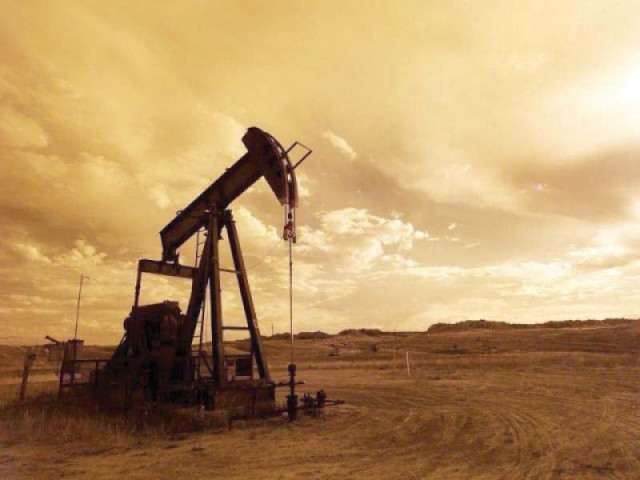IDB activates $4.5b credit facility for Pakistan’s oil imports
This financing is expected to stabilise rupee-dollar exchange rate

Initially, the IDB had committed $3.2 billion, which was almost similar to the previous facility that ended in 2017. However, on Pakistan’s request its size was enhanced to $4.5 billion for the 2018-20 period. PHOTO: FILE
The International Islamic Trade Finance Corporation (ITFC), a member of the IDB Group, rolled over a loan of $100 million this week, said sources in the Ministry of Finance and Economic Affairs. The Economic Affairs Division (EAD) secretary signed the Letter of Amendment for the credit facility.
The move comes amid unconfirmed reports that Saudi Arabia may soon come to Pakistan’s rescue as the latter is facing a severe strain on the external financing front.
The last Pakistan Muslim League-Nawaz (PML-N) government had sought $5 billion in aid from Riyadh, but it did not succeed. Now, hopes are high that the new government of Pakistan Tehreek-e-Insaf (PTI) may get assistance of around $2 billion from the kingdom.
Saudi Arabia’s ambassador to Pakistan met with PTI Chairman Imran Khan at the latter’s residence on Friday. China, which had also refused to bail out the PML-N government, has now agreed to give $2 billion in financial assistance. Of this, over $1 billion has been disbursed this week.
Jeddah-based ITFC is the financing arm of the IDB for trade activities. The financing will help Pakistan meet energy requirements for the period from 2018 to 2020. It will allow the country to finance vital imports of crude oil and refined petroleum products.
The $100-million rollover is part of the $4.5-billion assistance, a three-year framework agreement signed by Pakistan and the IDB in April this year.
Initially, the IDB had committed $3.2 billion, which was almost similar to the previous facility that ended in 2017. However, on Pakistan’s request its size was enhanced to $4.5 billion for the 2018-20 period, said a source in the finance ministry.
The fresh facility has been obtained at the London Interbank Offered Rate plus 2.27%, which is 48 basis points cheaper than the previous facility, said the sources.
In the last fiscal year 2017-18, the ITFC had extended four facilities for crude oil imports valuing at $870 million, according to EAD statistics.
Pak Arab Refinery Limited and Pakistan State Oil will utilise the $4.5-billion credit facility. Crude oil import financing requirements are met through the inter-bank market and the ITFC facility will ease the pressure on the inter-bank market.
Since December 2017, Pakistani rupee has shed around 22% of its value. However, the rupee in recent days recovered somewhat in the open market as it appreciated to Rs126 against the US dollar on Friday. It also strengthened 0.5% to Rs127.86 to a dollar in the inter-bank market.
Pakistan’s external sector problems aggravated over the past one year. The State Bank of Pakistan (SBP) lost $6.7 billion or 41.4% of its reserves in the last fiscal year 2017-18. In the year, the country recorded the highest-ever current account deficit of $18 billion due to record imports of $60.9 billion.
PTI’s nominee for the slot of finance minister Asad Umar has already hinted at knocking doors of the International Monetary Fund (IMF) to overcome the challenges. But recent assistance from China and Saudi Arabia may provide breathing space to the new government.
Sources in the finance ministry said Pakistan may receive $200 million in loan from Chinese commercial banks next week. Another commercial loan of $100 million is expected in the last week of August.
The new financing arrangements with China and foreign commercial banks will give sufficient time to the PTI government for formalising its strategy in order to cope with the situation. However, the IMF programme seems inevitable.
The situation in the Middle East with reference to Saudi Arabia’s strategic moves will also determine the timing of the new IMF programme, according to independent analysts.
Published in The Express Tribune, July 29th, 2018.
Like Business on Facebook, follow @TribuneBiz on Twitter to stay informed and join in the conversation.



















COMMENTS
Comments are moderated and generally will be posted if they are on-topic and not abusive.
For more information, please see our Comments FAQ